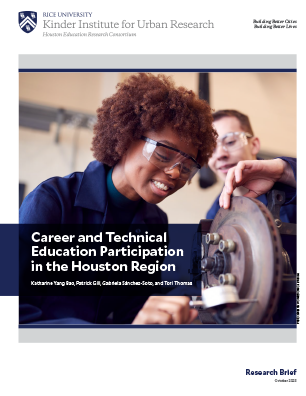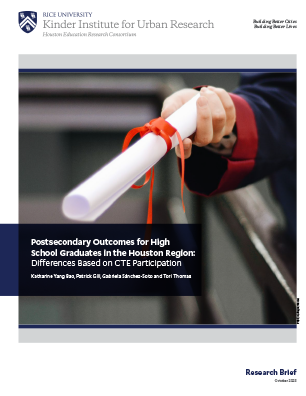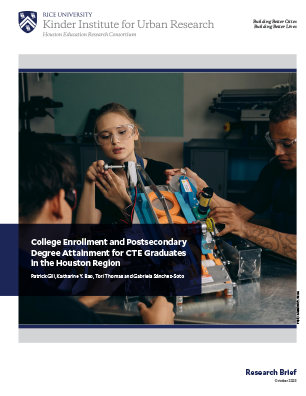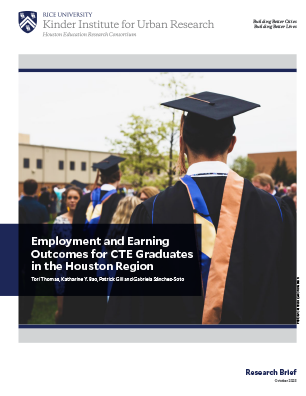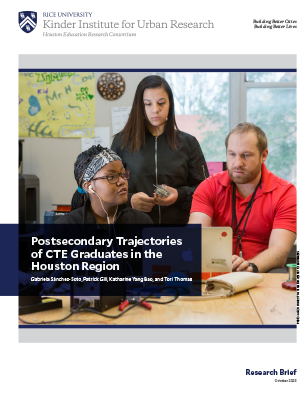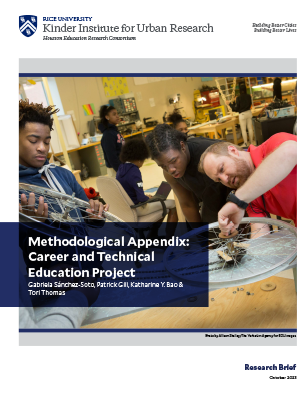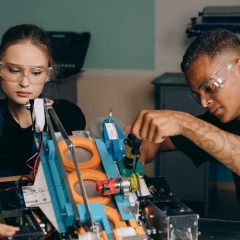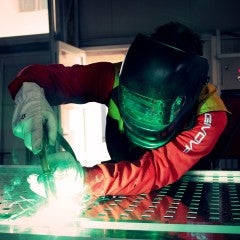The State of Texas emphasizes college, career, and military readiness (CCMR) in its annual accountability rating system for public schools. As part of these efforts, career and technical education (CTE) has been identified as an important element to improve the connection between students and the labor market. CTE programs offer a sequence of courses to provide students with rigorous academic content and technical skills to help prepare them for success after high school.
To better understand the role CTE plays in supporting a successful transition into adult life, the Kinder Institute for Urban Research's Houston Education Research Consortium conducted a broad study on CTE graduates from the 2013–14 to 2019–20 cohorts. This series of briefs looked at graduates' postsecondary education outcomes, such as college enrollment and degree attainment, as well as workforce outcomes, such as employment and earnings, and how college degree attainment influenced workforce success.
Key findings:
- Over two-thirds of Houston-area high school graduates engaged significantly with CTE in high school and qualified as “CTE graduates.”
- Approximately half of CTE graduates in the Houston area focused on one of the following three CTE career clusters: Business, Marketing and Finance; Health Science; and Agriculture, Food and Natural Resources.
- Nearly 60% of CTE graduates enrolled in college within 6 years of high school graduation, but this varied by student group, with Asian and non-economically disadvantaged CTE graduates being more likely to enroll.
- About 20% of CTE graduates who enrolled in 2-year institutions attained associate’s degrees or postsecondary professional certifications, and 57% of those who enrolled in 4-year institutions attained bachelor’s degrees.
- CTE graduates earned more than non-CTE graduates 1 year after high school graduation, but differences had largely disappeared by 6 years after high school graduation.


